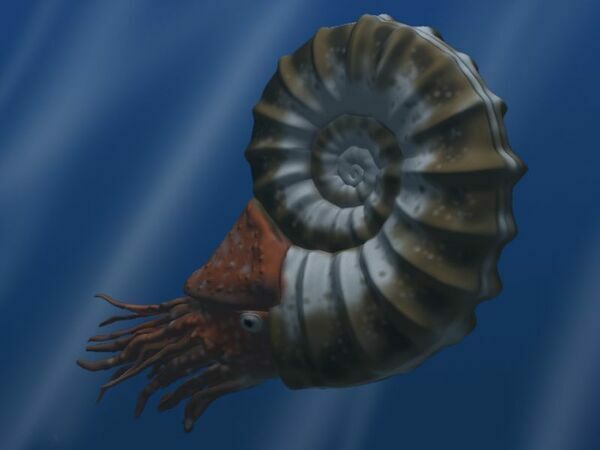This Specimen has been sold.
35" Eye-Catching, Cut and Polished Ammonite Fossil Coffee Table
This is a unique, eye-catching coffee table made from real, cut and polished ammonite fossils. These 110 million year old ammonite fossils have been cut in half to reveal their inner chambers, and mounted in epoxy to create the solid tabletop. The calcite replaced ammonite fossils are quite striking with their varying color combinations.
The ammonites range from just under 1" to just over 8" wide. The table top itself measures 35.25 x 23.4" and the table stands 17" tall with its metal base.
The ammonites range from just under 1" to just over 8" wide. The table top itself measures 35.25 x 23.4" and the table stands 17" tall with its metal base.
About Ammonites
Ammonites were ancient marine cephalopods, similar to today's squids and octopuses, but with a defining feature: their distinctive, tightly coiled spiral shells. These shells, resembling those of modern nautiluses, served as both a protective home and a buoyancy aid, allowing ammonites to navigate the prehistoric seas with ease. First emerging around 240 million years ago in the Triassic Period, ammonites thrived for over 175 million years, adapting through numerous forms and sizes. As predatory creatures, they likely fed on smaller marine organisms, using their tentacles to capture prey. However, their long reign came to an end 65 million years ago at the close of the Cretaceous, coinciding with the mass extinction event that also eliminated the dinosaurs.
Ammonites were ancient marine cephalopods, similar to today's squids and octopuses, but with a defining feature: their distinctive, tightly coiled spiral shells. These shells, resembling those of modern nautiluses, served as both a protective home and a buoyancy aid, allowing ammonites to navigate the prehistoric seas with ease. First emerging around 240 million years ago in the Triassic Period, ammonites thrived for over 175 million years, adapting through numerous forms and sizes. As predatory creatures, they likely fed on smaller marine organisms, using their tentacles to capture prey. However, their long reign came to an end 65 million years ago at the close of the Cretaceous, coinciding with the mass extinction event that also eliminated the dinosaurs.
SPECIES
Mostly Cleoniceras
LOCATION
Ambatolafia, Mahajanga Province, Madagascar
SIZE
35.25 x 23.4", 17" tall with base
CATEGORY
SUB CATEGORY
ITEM
#303664
We guarantee the authenticity of all of our specimens.
 Reviews
Reviews
















